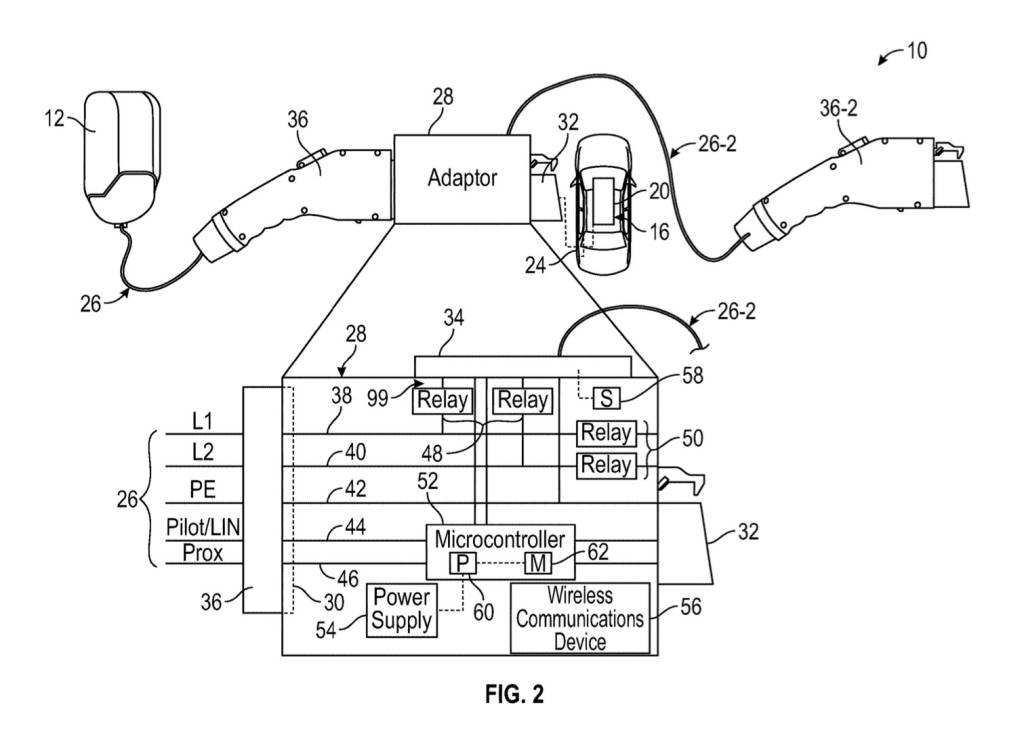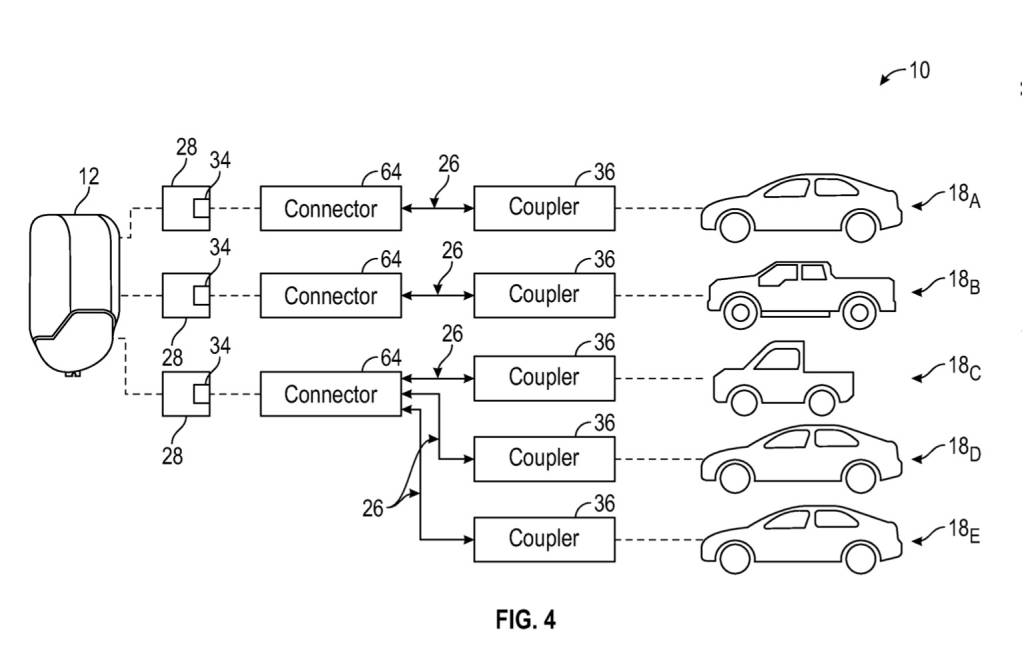
[ad_1]
A current Ford patent submitting examines utilizing bidirectional charging and an adapter to cost a number of automobiles from the identical energy supply—with potential fleet functions.
A Ford patent utility printed by the USA Patent and Trademark Workplace (USPTO) July 27, 2023, and initially filed January 26, 2022, particulars the charging of a number of automobiles by plugging a primary automobile right into a charging station conventionally, and utilizing adapters that would join a automobile’s cost port to a charging cable to loop in different automobiles.

Ford bidirectional charging adapter patent picture
A coupling and microcontroller within the adapter would permit a automobile geared up for bidirectional charging to discharge energy from its cost port, by way of the adapter and related charging cable, to a different automobile.
Ford is already implementing bidirectional charging, together with {hardware} that enables the F-150 Lightning to behave as a residence backup energy dealer. However this adapter may very well be notably helpful to company consumers of the F-150 Lightning Professional and different fleet EVs, permitting a number of automobiles parked on the similar storage to be charged collectively off one charging station.

Ford bidirectional charging adapter patent picture
Ford does not particularly point out this use in its patent submitting, however Rivian did in a patent utility for the same pass-through charging system printed by the USPTO June 22. The concepts offered in each functions seem permissible underneath present requirements, which do not permit extension cords to attach chargers and automobiles however would doubtless permit automobiles for use to relay energy from a single charger.
Whereas intelligent, there isn’t any assure Ford’s bidirectional charging adapter will attain manufacturing. The automaker is a prolific writer of patent functions—together with one for a magnetic charging connector that sounds a bit like an Apple MagSafe connector for EVs—however they do not all advance past the patent stage.
[ad_2]